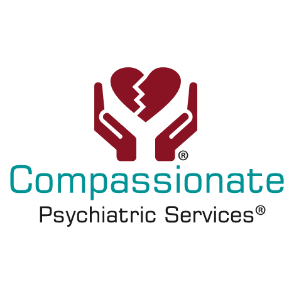Empowering Minds, Restoring Hope: A Comprehensive Guide to Mental Health Support and Compassionate Healing at Compassionate Psychiatric Services
In recent years, there has been a growing awareness and understanding of mental health issues. However, despite progress, stigma and shame continue to surround mental health challenges, making it difficult for individuals to seek help or even talk openly about their struggles It’s crucial to nurture a compassionate and non-judgmental approach towards individuals grappling with mental health challenges, as shown by Compassionate Psychiatric Services (CPS) in Texas, which champions innovative treatment solutions.
Understanding Mental Health in 2024: What’s Happening Now
Did you know, according to the National Alliance of Mental Illness (NAMI) mental illness affects more that 50 million people in the United States and a large percentage of those people go without treatment every year? Mental health issues can include things like feeling anxious, sad all the time, or having a hard time dealing with past bad experiences. Some people also struggle with addiction. Even though lots of people have these problems, many of them can’t get the help they need because they worry about what others will think, they don’t know what help is out there, or they simply can’t afford mental health care.
Understanding Mental Health Signs and Symptoms
Recognizing the signs and symptoms of mental illness is a crucial step in promoting mental well-being and compassionate support. Mental illness encompasses a wide spectrum of conditions that impact mood, thinking, and behavior, such as depression, anxiety disorders, schizophrenia, eating disorders, and addictive behaviors.
The transition from occasional mental health concerns to a mental health diagnosis often hinges on long lasting symptoms that cause significant distress and interfere with daily functioning. These symptoms can manifest in various ways, affecting emotions, thoughts, and behaviors.
Some common signs and symptoms of mental illness include:
- Feeling sad or down: Persistent feelings of sadness or emptiness that don’t improve with time.
- Confused thinking or reduced ability to concentrate: Difficulty focusing, organizing thoughts, or making decisions.
- Excessive fears or worries, or extreme feelings of guilt: Overwhelming anxiety, irrational fears, or persistent feelings of guilt and worthlessness.
- Extreme mood changes of highs and lows: Intense mood swings, ranging from euphoria to deep despair.
- Withdrawal from friends and activities: Loss of interest in activities you once enjoyed, social isolation, or avoidance of social interactions.
- Feeling tired, having low energy, or problems sleeping: Persistent fatigue, lack of energy, insomnia, or oversleeping.
- Feeling detached from reality (delusions), paranoia, or hallucinations: Beliefs or perceptions that are not based on reality, paranoia, or experiencing things that are not there.
- Inability to cope with daily problems or stress: Feeling overwhelmed by routine tasks or struggling to cope with stressors.
- Trouble understanding and relating to situations and people: Difficulty comprehending social cues, forming, and maintaining relationships, or adapting to changes.
- Problems with alcohol or drug use: Increased reliance on substances to cope with emotions or difficulties.
- Major changes in eating habits: Significant weight loss or gain, obsessive thoughts about food, or changes in eating patterns.
- Sex drive changes: Loss of interest in sex or changes in sexual behavior.
- Excessive anger, hostility, or violence: Uncontrolled anger, irritability, or aggressive behavior towards oneself or others.
- Suicidal thinking: Thoughts of self-harm or suicide, feelings of hopelessness or worthlessness.
It’s important to remember that symptoms can vary widely depending on the specific disorder and individual circumstances. Sometimes, symptoms of mental health disorders can manifest as physical problems like stomach pain, back pain, headaches, or unexplained aches and pains.
Recognizing and understanding these signs and symptoms is the first step towards seeking help, promoting early intervention, and fostering a supportive environment for mental health and wellness. Encouraging open conversations about mental health and reducing stigma can empower individuals to seek the care and support they need for a healthier, more fulfilling life.
Learn About Kind and Helpful Mental Health Services at Compassionate Psychiatric Services (CPS)
CPS is a place that gives hope to people who need personalized mental health care. They offer many services designed to meet each person’s specific needs such as Anxiety, depression, post-traumatic stress disorder (PTSD), addiction, trauma, eating disorders. Group counseling, TMS Therapy, SPRAVATO, numerous other mental health conditions and offers Telepsychiatry services so you never have to leave your home.
Compassionate Psychiatric Services bring MeRT, an innovative Brain Optimizing Program to their line of services.
One of the new advanced treatments CPS offers is called MeRT (Magnetic e-Resonance Therapy), which combines two types of therapy.
These two types of therapy to help improve brain function are: repetitive transcranial magnetic stimulation (TMS) and quantitative electroencephalogram (qEEG). MeRT also includes an electrocardiogram (ECG/EKG) to create a customized treatment plan for each patient. To learn more about MeRT and our services, visit our website.
Where in Texas are mental health services available at Compassionate Psychiatric Services?
Compassionate Psychiatric Services can help you with anxiety, feeling really sad, having a tough time after bad events, struggling with addiction, dealing with tough experiences, problems with eating, and many other mental health issues. They offer their services in Southlake and Frisco, Texas. If you or someone you know is having a hard time with mental health, don’t wait to ask for help. Start on the path to feeling better and get the caring, special mental health support you deserve.




